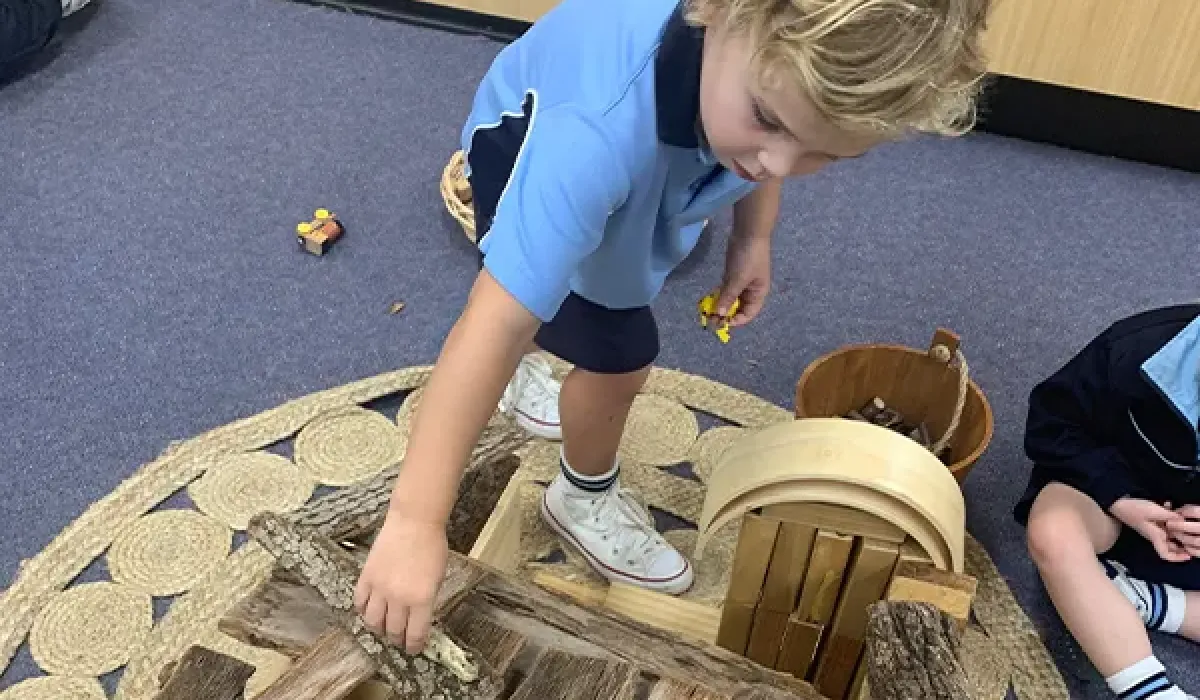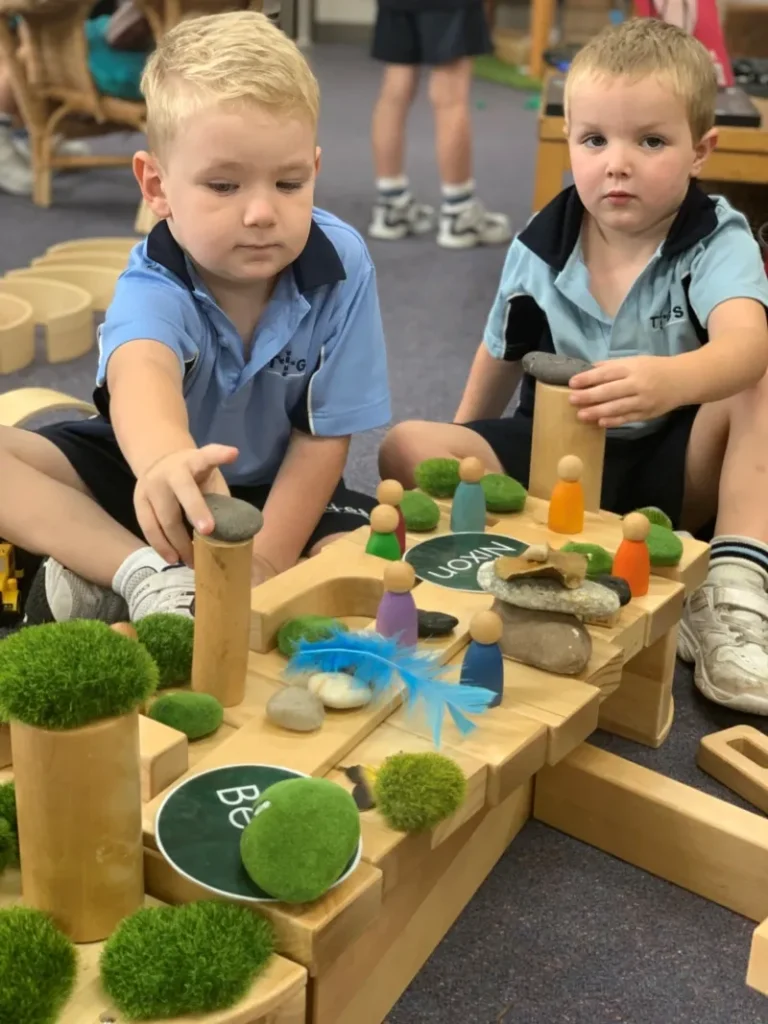
Sparking a Lifelong Love of STEM in the Early Years
Technology plays a positive role in children’s development and learning. Through the use of technology, teachers have access to more innovative and improved teaching methods that allow them to promote learning and create an active learning environment for children. Technology has the greatest potential to be transformational when we see it as something we can create and shape, rather than simply as a tool we use.
TIGS Prep is excited to announce that, for a third consecutive year, we have been selected to participate in the ELSA (Early Learning STEM Australia) National Pilot Programme. Aligned with the National Early Years Learning Framework, the University of Canberra has developed a suite of apps for pre-schoolers, their educators and families to learn more about STEM concepts. The pilot aims to minimise screen time while maximising learning outcomes and embedding experiences rich in STEM practices, helping children develop strong skills and core values in problem finding and solving, communication and creativity.
STEM is a valuable tool of learning as it focuses on ‘practice’ rather than the knowledge of each student. Ideas such as questioning, designing and building, exploring and challenging are being introduced and expanded through play. The children engage with fun and colourful apps individually and in small groups.
ELSA is a play-based digital learning programme for children in preschool to explore STEM practices. ELSA allows children to play, experiment and make sense of the world around them.
ELSA is a project was established to help preschool children become more interested and confident with Science, Technology, Engineering and Maths (STEM) concepts through hands-on and digital activities. The ELSA apps go beyond the screen to encourage active play, acting as a springboard for children to explore the natural world. The apps prompt children to ask questions, make predictions, experiment, and reflect on what happened and why.
In each of our classrooms you will often hear the Educator’s refer to STEM based experiences. STEM is an important element in Early Childhood Education today, as society increasingly moves towards technologically based industries. Open-ended play provides opportunities for scientific discovery and hands-on learning inquiry and allows our children to test theories in everyday situations
If you observe children at play, you will see they are perpetual engineers of their environment fascinated by building, decoding information and discovering similarities and differences, water play, comparing heights and lengths, creating ramps, experimenting with building by creating bridges and arches, only to find them fall down repeatedly, then watch as they work together to stabilise their constructions and rejoice together when they solve their engineering problem! Teamwork and persistence are nurtured and developed as the children explore STEM practices further.
Providing children with opportunities to construct, experiment and solve problems provides them with a concrete understanding of important concepts. As the children brainstorm ideas, look for solutions and identify problems they learn to test and modify what they do, all of which instills important processing skills and teaches them to be critical thinkers. Making positive associations between Maths and Science at an early age which is an important step to encouraging a life-long love of these subjects.
Embedding STEM into our daily programmes ensures that we are creating a culture that places problem solving at the heart of all we do. We must resist the urge to solve our children’s problems for them and alternatively challenge them to extend their thinking!
Leanne Attard (STEM Specialist Educator)


